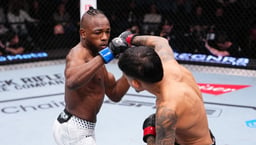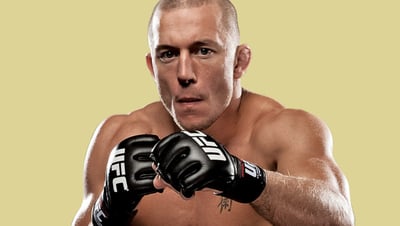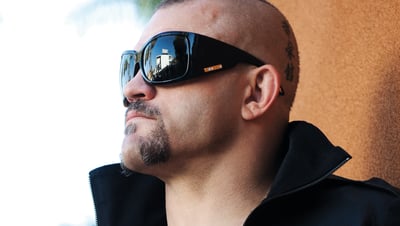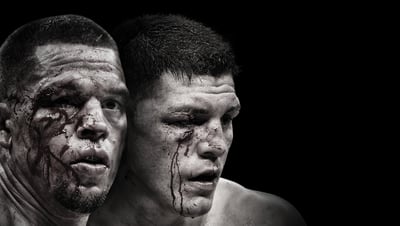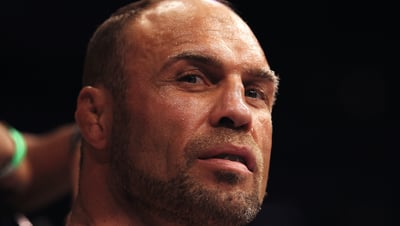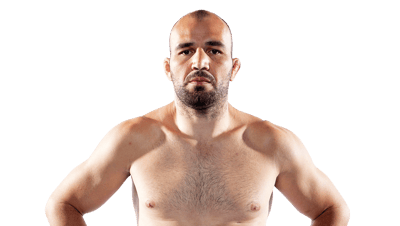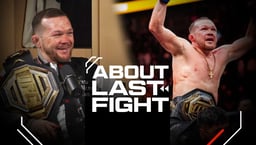
Issue 216
April 2025
Before championship belts were on the line, the world's greatest fighters were locked in their own battles. Isaac Barnett delves into the gritty and inspiring MMA origin stories that forged these warriors into the legends they are today.
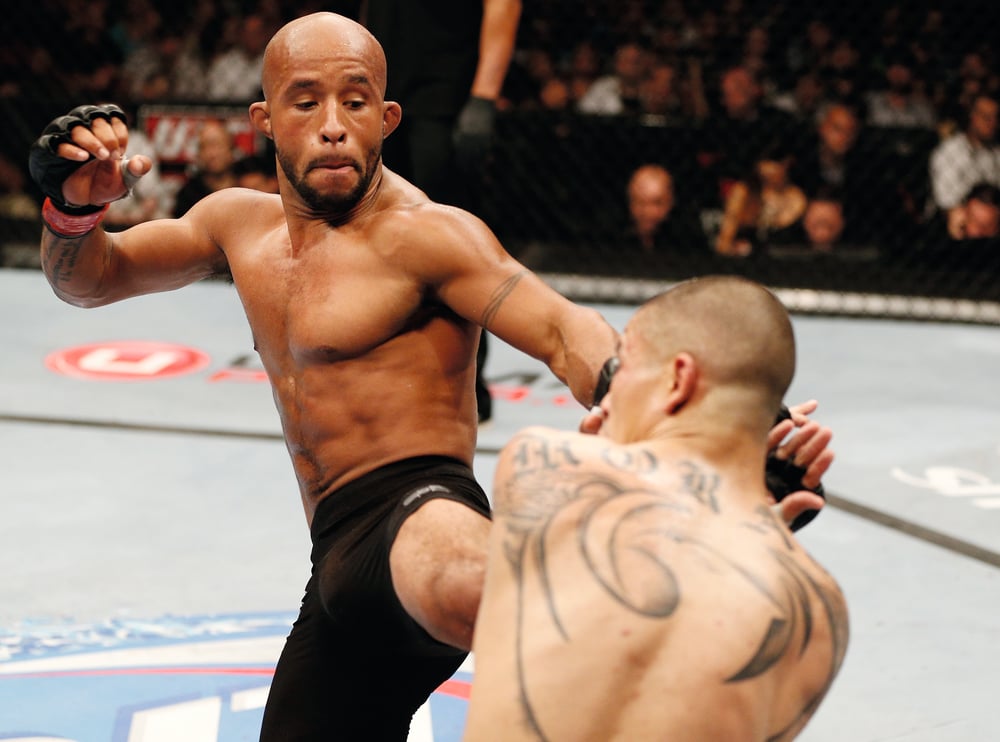
DEMETRIOUS JOHNSON – THE BIGGER MAN
Demetrious ‘Mighty Mouse’ Johnson was born in Kentucky on August 13, 1986, and grew up in Parkland, Washington. He was raised by his mother, Karen, who had a hearing impairment that made her deaf, and after his biological father left at a young age, she raised Johnson and his siblings. His mother was incredibly supportive, hardworking, and selfless, so much so that Johnson didn’t even realize she was deaf until his sister told him.
Speaking to ONE Championship, Johnson said: “She always taught me to look her in the face when I spoke to her. That way, she could read our lips, but I didn’t realize until my sister told me. When I asked her, my mom said, ‘Yes, I’m deaf. Why do you think I’ve always had you beat on the ground when you needed something from another room?’”
His childhood wasn’t smooth sailing. He suffered physical and mental abuse from his stepfather, who struggled with his psychological battles while he was part of the US military.
“I enjoyed my childhood. I didn’t know anything else. That was the life we had.
“I don’t think bad of my stepfather now. That was his life and the decisions he made, but it gave me lessons now that I am a father myself.”
Despite his challenging home life, Johnson enjoyed a successful wrestling career during his teenage years. Johnson started wrestling in eighth grade. He quickly learned he was a natural athlete and picked up almost every sport he tried.
“I was always into sports. I started playing football, but then I did track and cross country, but they were mostly for wrestling because the season only lasted so long,”
During his junior and senior years, he placed third in his state in wrestling and second in state championships in track and cross country. His athleticism caught the attention of colleges, and he was offered multiple scholarships. However, he rejected the offers because he did not want to leave his family and chose to work alongside attending a local college for two years. During this time, the Ultimate Fighter aired its first season, and Johnson thought MMA looked fun, so he decided to try it out.
Speaking to Genesis FIGHTS, he said: “I got into MMA right after high school. I never knew about MMA until right after the first Ultimate Fighter came on. I saw how they were training hard. I said, ‘damn, they’re kicking the bag; they’ve got tough bodies. I think I’m going to try it.’”
Johnson was hooked, and before he knew it, after two years of training, he amassed an amateur record of 9-0, which showed glimpses of the dominance that would define an area in the flyweight division.
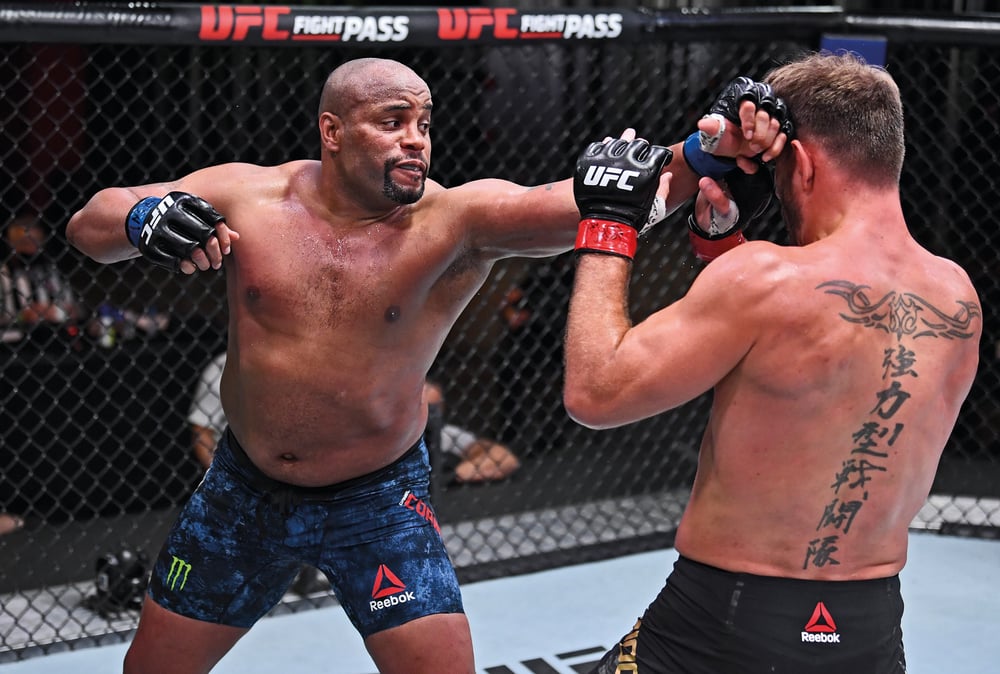
DANIEL CORMIER – THE OLYMPIAN
Daniel Ryan Cormier was born in Lafayette, Louisiana, on March 20, 1979.
His mother and father raised him alongside his older brother, Joseph, his sister, Felicia, and his younger brother, Feral. Cormier’s life was struck by tragedy when he was seven, as his father was shot and killed over a dispute with his second wife's father. He struggled to overcome the emotions that the death brought, which often led him to lose control. When he was 11, Cormier got into a fistfight in his school's car park, and the wrestling coach had to break them up. The coach then suggested that the boys come to his wrestling classes so that they could do something more productive with their aggression. This is what began Cormier’s journey in the world of fighting.
In an interview with Andscape, Cormier said: “I went in there thinking that I would be doing some WWE, but it was actually like referee position, being that you’re on your hands and knees, and I’m like, ‘What in the world is this?’”
At first, he didn’t enjoy wrestling. He wasn’t a natural, and his younger brother was better than him, but he continued to train, and after he found success, he was hooked.
“My parents had never let me quit anything, so I fell in love with the sport.”
Cormier went on to win three state championships, be voted the Most Outstanding Wrestler in two of those championships, and won a bronze medal in the Greco-Roman Wrestling World Championship. After graduating high school, he attended Colby Community College, where he became a two-time junior college national champion at 197 pounds in 1998 and 1999. He graduated college with a degree in sociology and then had a successful career in freestyle wrestling. As the US national champion for five years, he represented the USA at the Olympics, placing fourth. At the 2008 Olympics, he was the team captain in the 2008 Olympics, but he had to pull out due to kidney failure due to excessive weight cutting. After the Games, he took a break from wrestling, but because of a lack of physical competition, he was driven to try MMA.
“My friend King Mo, Muhammed Lawal, had started probably a year prior, and he’s like, ‘Man, you should try mixed martial arts.’ He said, ‘I think you’d be good at it.’ I went up to California, trained with him a couple of times, and came off the American kickboxing chat and trained with those guys there. I just was like, ‘You know what? This is what I’m going to do.’ Three weeks later, I was in the octagon.”
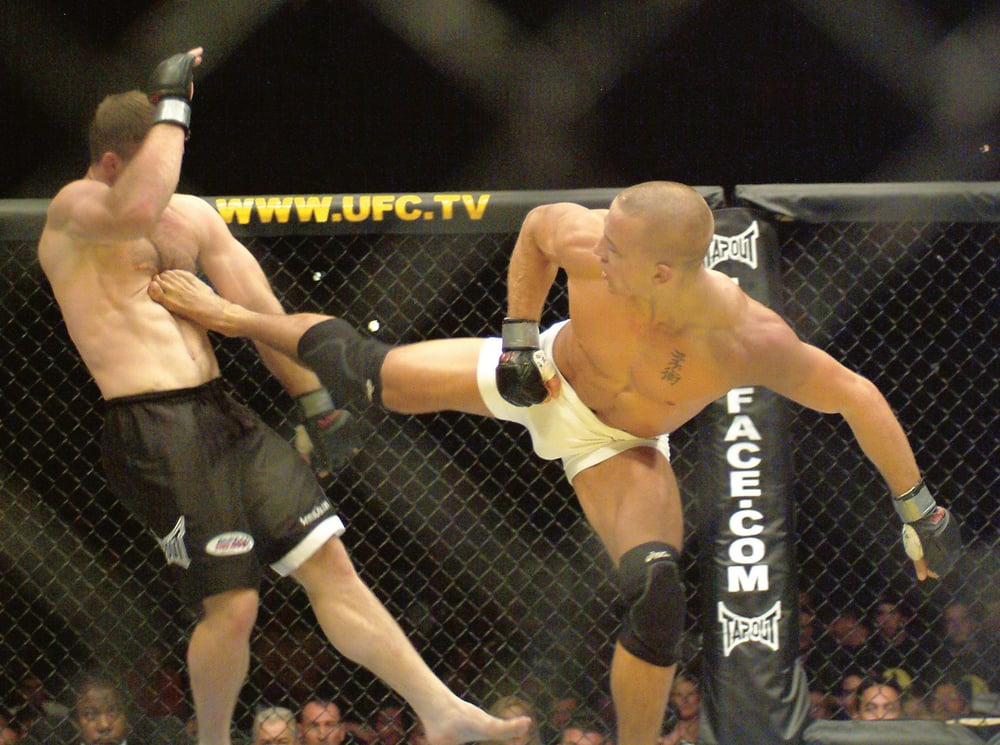
GEORGE ST-PIERRE – THE QUIET KARATE KID
George St-Pierre was born on May 19, 1981, in Saint-Isidore, Montérégie, Quebec. His mother and father raised him alongside his two younger sisters in his childhood home on a farm. While at school, he was a victim of intense bullying because he was small and quiet. His classmates would steal his clothes and lunch money, resulting in him missing school lunches. He eventually told his parents when he was seven, and his father began training him in Kyokushin Karate, a discipline in which his dad had a black belt.
Speaking to MMA Junkie, St-Pierre said: “I was bullied in school, and I needed to learn how to defend myself. Growing up, I was a kid who lacked a lot of confidence, and this is why I believe I was picked on. Martial arts taught me self-defense but also that confidence is a choice, not necessarily a state of mind. At first, it was hard to act differently, but over time, the bullying stopped.”
St-Pierre helped his father with an alcohol addiction because while he was teaching his son to learn Karate, he stopped drinking. By age 12, he had already obtained a second-degree black belt. While at a training session in his local gym, he discovered MMA.
“I was shown a tape of the early UFC and saw Royce Gracie win the tournament. He was fighting bigger guys, and it inspired me because it reminded me of my bullies. Seeing him win the tournament against guys who looked like bullies. Right away, I knew that I wanted to do the (fighting) for a living. It was unbelievable.”
St-Pierre continued to apply himself academically, but fighting wasn’t a stable career, so despite his skillset, he didn’t consider it a realistic pathway. While attending high school, he bumped into Kristof Midoux, a heavyweight fighter in the UFC. He explained that he had a background in Karate and wanted to learn MMA. He didn’t expect anything to come from Midoux, but to his surprise, he invited him to train the next day, beginning his journey in MMA.
“Midoux didn’t go far in his career. I know he made it to the UFC, but he had injuries and troubles outside of the cage. He was an incredible mentor and helped build a good base for the start of my career. He encouraged me to cross train, seek the best boxing coach, the best jiu-jitsu coach, and that’s what I did. I went to New York, to Gracie jiu-jitsu, I went to New Mexico to train. I didn’t know any English, but I built connections, and that’s where I began to improve, and I realized that I could hang with these guys.”
By the time he was 23, St-Pierre had already reached the UFC, and after his third fight, he challenged Matt Hughes for the Welterweight title.
...


